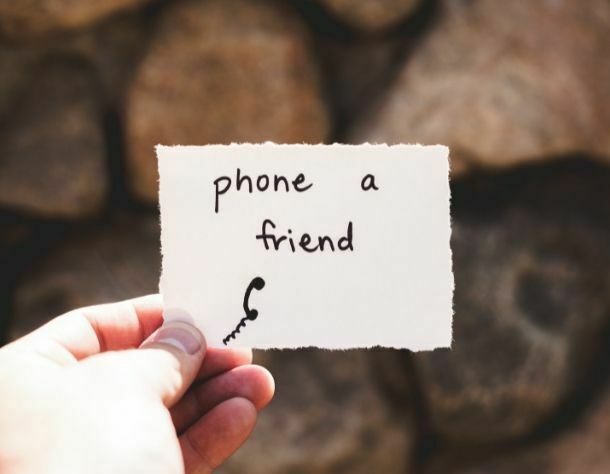Talk to Someone Now
If you or someone close to you are experiencing a mental health or suicidal crisis the NSPL is the primary resource to you call for help.
In 2020, the nation took a significant step forward with the enactment of the National Suicide Hotline Designation Act that created a nationwide three-digit number (988) to assist people experiencing mental health or suicidal crisis and is Federally mandated to be active for every telephone service provider by July 2022.
The number will provide access to a call center with trained staff to answer calls from individuals at risk for suicide as well as those experiencing other mental health and substance use related emergencies. Specialized services will be available for veterans, LGBTQ+ individuals, and other groups.
Call the NSPL Line
When will 988 be available to call?
Until July 2022, if you are in the Region Five area and experiencing a mental health crisis or emotional distress should call (757) 656-7755.
Region Five area serves the communities of the Colonial, Chesapeake, Eastern Shore, Hampton-Newport News, Middle-Peninsula Northern Neck, Norfolk, Portsmouth, Virginia Beach and Western Tidewater Community Services Boards.
Why 988?
According to the National Institute of Mental Health, suicide rates have been steadily increasing in the United States and suicide is the second leading cause of death in the U.S. for people ages 10 – 24 years old.
Key leaders understood the difficulty of remembering a 10-digit number to connect to the existing suicide prevention line and the lack of adequate crisis services in communities.
After Congress passed legislation directing the FCC to study the feasibility of creating a three-digit number to help people in mental health crisis connect to crisis services more easily, the FCC released a report in August 2019 recommending 988 as the best number for a national three-digit suicide and mental health crisis hotline. The report was in conjunction with the U.S. Substance Abuse and Mental Health Services Administration (SAMHSA) as well as the U.S. Department of Veterans Affairs.
With the support of the mental health community, the FCC issued a final rule and order in July 2020 to start the process of getting 988 operational. With broad, bipartisan support from Congress, President Trump signed the National Suicide Designation Act in October 2020.
One aspect of the Act allows states to assess a fee on cell phone bills to recover the costs of the three-digit number and associated crisis services provided to individuals in crisis. A similar fee on cell phone bills supports 911 in most states.
What is the difference between 988 and 211?
What is the difference between 988 and 911?
911 is currently used for all emergencies, including mental health emergencies. Mental health crisis calls may result in potentially dangerous and traumatizing outcomes when police are called, especially in historically marginalized communities.
Despite their best efforts, 911 dispatchers usually have not received specific training on how to handle mental health and suicide related calls. Although law enforcement response is often not necessary or appropriate for mental health crisis situations, police are typically the first responders activated by 911 calls. Using the 988 service changes the response team.
What is the difference between 988 and the current national suicide hotline
988 will be a mental health crisis number, and calls will be handled by National Suicide Prevention Lifeline counselors.
These counselors are highly trained to assist people in emotional distress or suicidal crisis. In fact, based on data provided by Lifeline call centers, approximately 98% of answered Lifeline calls do not require an emergency response.
Of the 2% of the calls that do require emergency response, over 60% of those calls are ones where the caller agrees that emergency services are needed and collaborates with the Lifeline counselor to receive those services.

